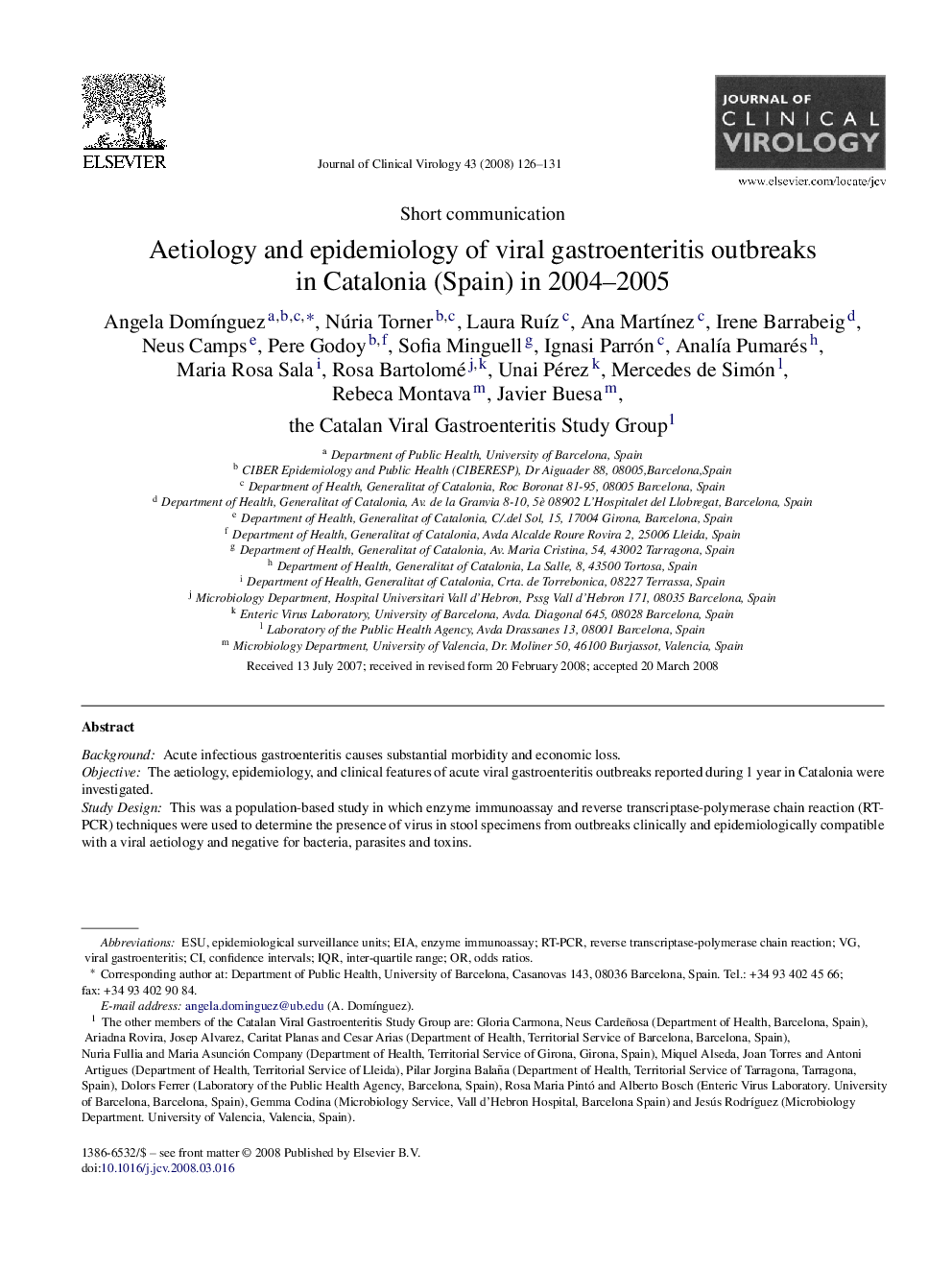| Article ID | Journal | Published Year | Pages | File Type |
|---|---|---|---|---|
| 3370118 | Journal of Clinical Virology | 2008 | 6 Pages |
BackgroundAcute infectious gastroenteritis causes substantial morbidity and economic loss.ObjectiveThe aetiology, epidemiology, and clinical features of acute viral gastroenteritis outbreaks reported during 1 year in Catalonia were investigated.Study DesignThis was a population-based study in which enzyme immunoassay and reverse transcriptase-polymerase chain reaction (RT-PCR) techniques were used to determine the presence of virus in stool specimens from outbreaks clinically and epidemiologically compatible with a viral aetiology and negative for bacteria, parasites and toxins.ResultsSixty outbreaks affecting 1791 people were evaluated. Fifty-five outbreaks were positive for norovirus, four were positive for norovirus and other microorganisms (adenovirus, astrovirus, S. Typhimurium and V. parahaemolyticus in one each). Thirty-seven percentage of the outbreaks occurred in collective catering; 18.3% in nursing homes; 10% in hospitals and long-term-care facilities. Foodborne transmission accounted for 50% of outbreaks. Norovirus genotype GGII.4 accounted for 42% of all the outbreaks, being more prevalent in nursing homes, hospital and long-term-care facilities.ConclusionsThe large number of norovirus outbreaks and resulting health service demand and absenteeism indicate that acute gastroenteritis caused by norovirus is an important health problem in Catalonia. Preventive measures should target education and control of food handlers, and immediate specific control measures should be adopted in institutions.
